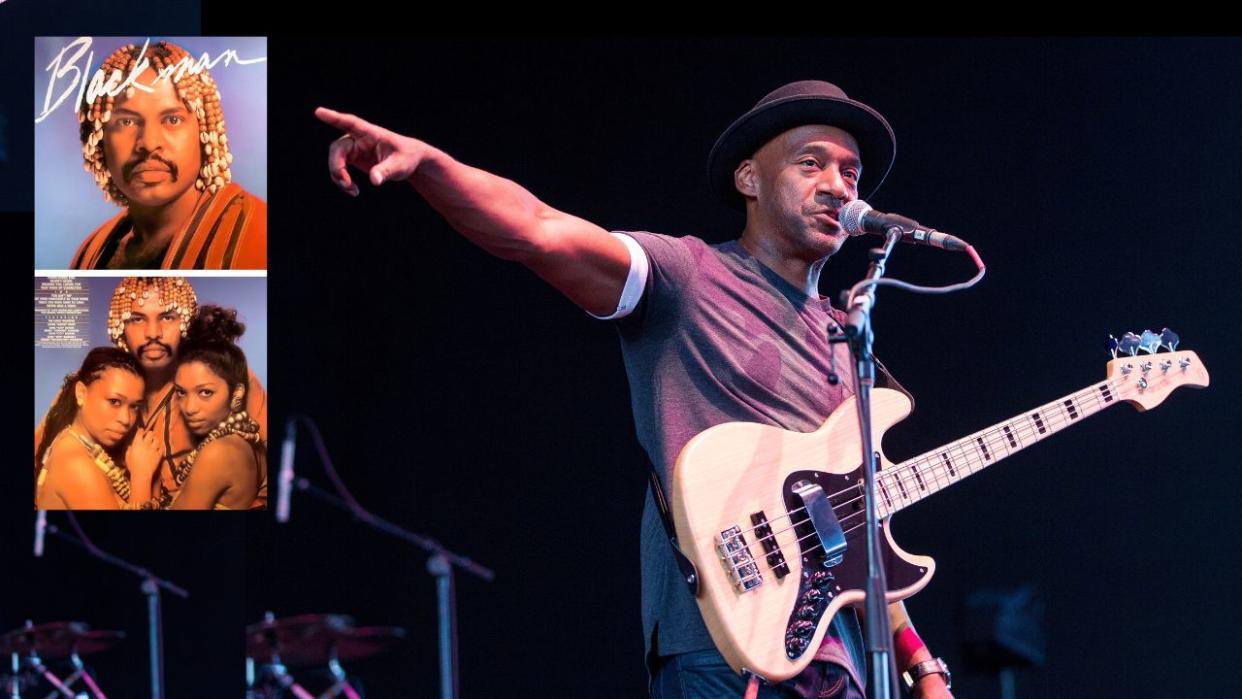“Barry was yelling at me, ‘Play!’ He could tell I was nervous”: How Barry Johnson inspired a young Marcus Miller

- Oops!Something went wrong.Please try again later.
- Oops!Something went wrong.Please try again later.
It seemed the entire music world was clued in to the wealth of talent pulsating from Jamaica, New York, as the 1970s turned to the 1980s. While Marcus Miller, Tom Browne, and Omar Hakim claimed the lion’s share of the limelight, just beyond the glare were other major talents like keyboardists Bernard Wright, Denzil Miller, Donald Blackman and bassist Barry ‘SunJohn’ Johnson.
“Barry Johnson was one of my earliest bass heroes,” Marcus Miller told BP. “I first heard him in a basement in Jamaica, Queens, at a band rehearsal. I had never seen a Rickenbacker before, which was the bass he was playing, and I had never heard somebody play the bass like that.
“I remember having to play in front of him at a club. Omar Hakim and I were playing with Omar’s dad, Hassan, a trombonist who was with Jimmy Lunceford’s big band back in the day. Anyway, it was time for me to solo, and I didn’t play my best as I was too busy tripping because he was there. He was yelling at me, ‘Play!’ He could tell I was nervous. I was pissed off at myself and told him later that night. He encouraged me and said, ‘Don’t ever let that happen again!’”
Johnson went on to replace Miller in Lenny White’s band, which already included Don Blackman. Over the course of three now-classic-underground albums, the new group, which White dubbed as Twennynine, came close to a major breakout (thanks to the Blackman-written hit Peanut Butter) before disbanding in 1981.
Picking up the pieces, Blackman cut his equally cult-classic 1982 solo album, Don Blackman, featuring Johnson and a young Dennis Chambers on drums. “Barry killed on the three Twennynine albums,” said Miller. “And the bass playing he did on Don Blackman is absolutely classic.”
Heart’s Desire, one of the gems from the album, is a prime example of Johnson’s Jamaica pocket. It’s a bass guitar masterclass in moving fluidly between fingerstyle and slap.
Sessions took place at Manhatten’s A&R Studios in late 1981, with the rhythm section rounded out by guitarists Steve Horton and Eddie Martinez, and percussionist Crusher Bennett.
The track begins with an intro that states the main four-bar chord sequence. Johnson plays the lilting four-bar bassline exactly as Blackman had given it to him – along with instructions to make the part his own – against Chambers’ basic kick-and-snare groove. His first decision was to switch from fingers to slap for the pickup and downbeat of bar 4. He later adds a slapped octave part before returning to fingers for the pickup.
The first chorus sees Johnson add more notes and accents, while Chambers unleashes his own kick-drum fills. “Dennis stayed at my house a few days and played on a kit I had from Omar Hakim,” said Johnson. “We had an instant chemistry, and the practice exercises he had were insane!”
For the second chorus, an inspired Johnson adds a slapped triplet, and steps out further up the neck. He also gets a bit looser and busier for the second verse. “Listen to the way Dennis swings, and make that go through your body,” he told BP. “Lay back on the part and feel the spaces.”
I pluck the same area that I slap, at the bottom of the fingerboard, so there’s no horizontal move to make
Johnson played his passive Fernandes Jazz Bass, strung with GHS Boomers and recorded direct. He had been given a demo of the track (with Marcus Miller on bass) and rehearsed it with the band; they cut the song in a couple of takes, with Johnson making a few punched fixes. “People all over the world still approach me about Donald’s record. I’m proud and honoured to be associated with it.”
As for his seamless technique changing: “I pluck the same area that I slap, at the bottom of the fingerboard, so there’s no horizontal move to make. Practice everything you play with your fingers with your thumb, and try to make them sound the same.”

